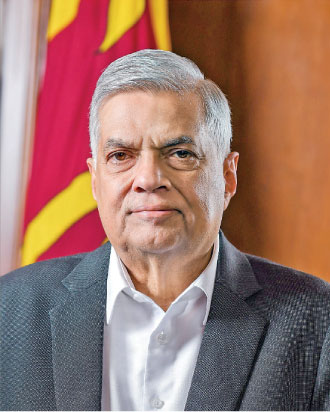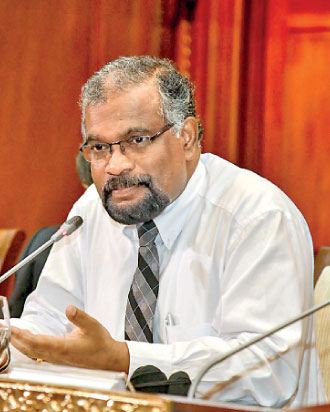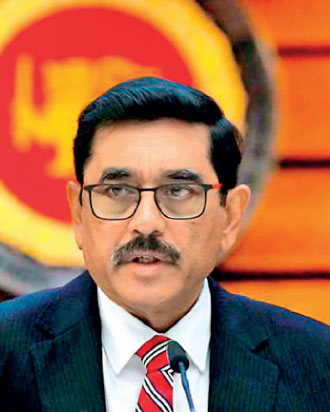Wednesday Feb 18, 2026
Wednesday Feb 18, 2026
Thursday, 29 June 2023 03:22 - - {{hitsCtrl.values.hits}}

President Ranil Wickremesinghe

Treasury Secretary Mahinda Siriwardena

CBSL Governor Dr. Nandalal Weerasinghe
The Government appears to have opted to a soft Domestic Debt Optimisation (DDO) exercise sparing the Treasury Bond heavy banking sector but restructuring other liabilities.
The President Media Division in a brief announcement yesterday said the “Proposed domestic debt restructuring program proposed by the Finance Ministry has been approved by the special cabinet meeting unanimously which concluded this evening and all Government MPs were notified a short while ago at the Presidential Secretariat. The proposal will be submitted at the next Parliament session for discussion.”
Subsequently, a purported presentation by the Central Bank of Sri Lanka (CBSL) to the special Cabinet meeting yesterday implied that the eventual DDR/DDO originally feared impactful and forced the Government to ensure a five-day holiday for the financial services sector as a cooling off period, was a soft landing as opposed to a hard one.
Whilst clarity on the DDO is expected today, analysts last night said as per the Government’s proposals T-bonds of superannuation funds proposed to be exchanged for longer maturity T-bonds (2027 to 2038), with a step-down coupon structure of 12% (till 2025E) and 9% till maturity.
CBSL holdings of T-bills to be converted to T-bonds maturing between 2029 and 2038, with a step-down coupon structure. This will be implemented in Phase 2 of the DDO
The T-bill and T-bond holdings of the Banking sector has been excluded from the DDO considering the significant stress on the banking sector at present due to increasing NPLs, impact of an External Debt restructure and high taxation. Banking sector exposure to Treasury Bonds is Rs. 3.1 trillion or 21% of total. Banks also hold Rs. 657 billion or 20% of total Treasury Bills stock.
The three options presented for SLDBs and FCBUs include:
1) Treatment similar to ISBs: 30% principal haircut with a 6-year maturity at 4% interest rate
2) Treatment similar to official USD creditors: No principal haircut, with a 15-year maturity and 9-year grace period at 1.5% interest rate
3) Exchange for LKR instruments: No principal haircut with a 10-year maturity at SLFR + 1% interest rate.
In order to encourage participation of the Superannuation funds, non-participating funds will be subject to Income Tax rate of 30% (vs current rate of 14%), which will result in an average return of 7.7% (vs. 9.1% under a participating scenario).
An analyst opined that the what was approved by the Cabinet was a “very light DDO” transferring the onus is on the fiscal effort to achieve the 2.3% primary surplus which will be very difficult.
The DDO is only targeting 1.5% as opposed to preferred 2.5% to provide a buffer for the fiscal effort, he said adding that the move raises concerns on sustainability whether this is a deep enough cut and as for equity it’s clearly not fair – EPF and ETF are taking a hit but others are left out.
Another argued that the banks stand to make huge capital gains which will boost Government revenues with tax on banks as high as 60%. “So, the net benefit in DDO covering banks would have been negligible,” he opined.
Another said that the Government’s move was populist and the CBSL would be taking the biggest brunt, whilst the banks would be impacted by the restructuring of the International Sovereign Bonds (ISBs) which is yet to be announced.
A source in the main Opposition confirmed that the CBSL would be impacted most whilst the Government has attempted to preserve the stability of the banking sector as well as safeguarding public deposit. “However, whether the arrangement ensures equitable and fair treatment of all creditors is the biggest question,” he added.
